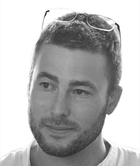
Region: Africa
Category: Higher education
With the collapse of the labor market and unemployment issues, education is becoming fundamental to business survival and hindrance of a life in poverty. Especially in lesser-developed countries, it is vital to get an education to ensure a future. The Open University of West Africa (OUWA) was founded in founded in Ghana the November 2011 and currently 40 students are enrolled in their first undergraduate program, which are expected to graduate in 2015. OUWA offers two programs; a non-degree granting business program, and a diploma in general education. OUWA is currently working on a Physicians Assistant degree and a Diploma in Sustainable Agriculture. The goal for OUWA is to break the poverty cycle in West Africa, through education, incubation and investment.
John Roberts grew up in Southern California and founded his first project in his early twenties, serving food to the homeless in this neighborhood four times a week. In 2007, John graduated from the American University of Pairs with a bachelor in International Affairs. Later, in 2011 he received his master of Public Policy Development/IR from the National University of Singapore. John is currently expecting to complete his Ed.D of Organizational Leadership in 2014 from Pepperdine University. By February 2007 John founded the nonprofit organization, Heal the World. Heal the World wishes to form a symbiotic network between learning and investment, connecting the developing and developed nations. John is to this present day still the active president of Heal the World. In November 2011, John co-founded OUWA, together with Patrick Steele. OUWA benefits thousands of young people throughout the continent, promising a quality education throughout.
The university is located in the least developed region of the world; West Africa. In West Africa less than 10% of students are enrolled in an institution of higher education, and extreme poverty is a life-threatening reality for many. OUWA provides extremely low-cost education (USD $10/year), while encouraging each student to make a difference in the future. OUWA also runs a lively incubator that invests in their students’ projects. For the students who finish the online certificate program in entrepreneurship (takes up to six months), one student team will receive funding for their idea or project. By the end of 2013, OUWA expects: to enroll an additional 500 students, open four more Internet café campuses and co-working spaces in other West African countries. Also, OUWA plans to invest in further ideas and projects for more than 30 students.
No, it was being confronted with two realities; one, that extreme poverty exists on a large scale, and two, that there are many people trying to do something about it. It made me want to do something about it. The idea for OUWA didn’t start forming until a couple of years later, and didn’t full come into focus until a solid 5+ years later. We did a lot of research. The model isn’t completely original in that the parts stem from other models; open educational resources, microfinance, cooperatives, etc. But it is a beautiful piece of recombinant innovation.
What has been your motivation for your projects and who is your role model in the entrepreneurial world?
I don’t like problems. I see poverty as a problem. One that needs to be solved. I didn’t feel like people were truly stepping up and doing so in a way that would actually achieve 100% eradication. So I wanted to see what would happen if I put my soul, heart and brain to it. Think we are making progress. Pretty excited at this point. As far as a role model, I have had a few. The most poignant is Antonio Meloto, founder of Gawad Kaligna – the Philippines’ largest grassroots social business.
| What was it like starting up your business? What was the beginning like and what resistance did you encounter (from locals and the government)? It has been a long road. If I knew what was coming, who knows whether I would have had the discipline to say yes. But I didn’t, so in my own naiveté, I set out. I wouldn’t change that for essentially anything. Ignorance can be bliss. I have to work really hard now. But find joy in it. The biggest struggle for years has been sustainability. But after being inspired by the likes of Mohammed Yunus, I do believe that social business offers a promise of sustainability. |
Ghana was strategically the right environment to incubate this idea. It is stable, Anglophone, etc.
What was your greatest achievement and biggest disappointment in your entrepreneurial career?
My greatest achievement to date has been mentoring a team that was the highest ranked startup (Global Startup Battle) in West Africa. Amazing idea, amazing team. My biggest disappointment has been the friends I have lost along the way. Building things is complicated. Egos get in the way. Disagreements about money get in the way. Being a social entrepreneur can really take its toll on your friendships.
Your project is doing great and is very ambitious. However, if there was anything you could have done differently when starting up what would that have been?
I think we should have found a local co-founder from day one.
How did you manage to make your project financially sustainable when you first started? And how do you intend to make it financial sustainable in the future as well?
We are reinventing the model of the university. We focus on long-term revenue streams, not tuition. In the short term, we stay afloat by sharing the burden of aspects of our operating cost via the co-working/hub model.
How do you think the entrepreneurial world has changed since you started?
It seems like there is an emergence in the “cluster”, “hub”, etc. world. I think this collaborative, streamlining, trend is super positive.
What are your next big steps with OUWA and what is your vision?
My vision is to see 1,000,000+++ students enrolled in nearly free higher education. To see 10,000,000 families find employment in our ecosystem. To end poverty. Our next big steps to do this will be to add faculties. Medicine (the PA program) is the first in line. Working with some amazing people on that.
What advice would you give to up coming entrepreneurs? Both from getting an idea to making it happen and financial advice?
Start. Pivot.
Why did you decide to become an entrepreneur?
I didn’t. It just happened.

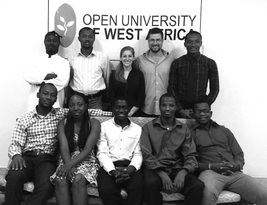
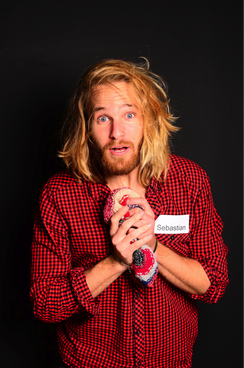
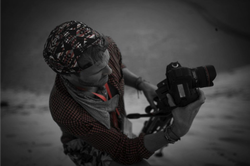
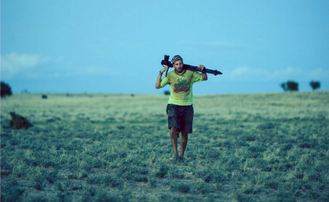
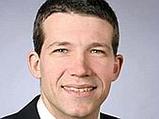
 RSS Feed
RSS Feed
